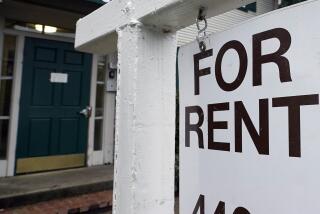How to Use Timing to Reduce Your Tax Bill
When it comes to tax planning, timing is nearly everything.
“There is no question about it. It is almost always better to pay the government tomorrow than today,” said Bill Stirton, partner at the accounting firm of Coopers & Lybrand in Los Angeles. “Timing is the key.”
Paying a few bills a week or two early or getting a bonus a few weeks late, for example, may net you hundreds of dollars in tax savings on your 1991 return.
The savings are only temporary, of course. In theory, at least, you’ll end up paying the tax you saved this year when you file for 1992.But in the interim, you could earn interest by investing money that would otherwise have gone into the coffers of the Internal Revenue Service.
How much can this save you? It depends on how much tax you owe and how many chances you have to defer taxes through strategic bill-paying.
Those who take advantage of all their opportunities can often save substantial amounts.
If you have a home mortgage payment due in January, for example, consider making the payment on Dec. 31 so you’ll be able to deduct the mortgage interest expense on this year’s tax return rather than on your 1992 return.
The savings? Consider a man who has a $1,200 payment, of which $1,000 is interest expense. The $1,000 interest is deductible, which means that this individual’s 1991 tax bill will drop by $280 if he’s in the 28% tax bracket and he makes that payment a few weeks early.
The same holds true for paying state taxes due in January.
There’s one caveat. If you have a high income and unusually large deductions, you may risk falling into the alternative minimum tax system, which results in your getting less mileage out of your deductions. Those who flirt with AMT restrictions would be wise to consult a tax adviser, who may suggest that they delay taking certain deductions in order to avoid AMT.
Additionally, tax accountants stress that the only bills you want to pay early are those that are due in a matter of weeks.
You should not--and sometimes cannot--accelerate payments that would otherwise be made later in the year. If you have not been billed for a service, you cannot pay the bill to obtain a deduction, says James F. Ivers, professor of taxation at the American College in Philadelphia. For instance, you cannot pay your February and March mortgage bills in December and get a deduction for the interest expense, he says.
Even when you can pay a deductible expense several months early, you probably don’t want to, accountants note. Here’s why: These tax strategies just delay the day the tax is due. They do not provide permanent savings. Therefore, you haven’t really saved $560 by paying your $2,000 property tax early: You’ve gained a deduction that knocks $560 off this year’s taxes--money that could earn interest for another year. At 10%, that’s a $56 permanent savings.
Now consider what happens if you pay a $2,000 bill that’s not due until April. You lose use of that $2,000 for four months.
If you could have earned 10% annual interest, that would cost you $66. (10% divided by 12 equals 0.833%, times $2,000, times four months equals $66.64.) In other words, you lose $10 by paying the bill early.
Other ways to use timing to your advantage:
* If you invest in a mutual fund that is likely to distribute taxable gains before year-end, you might consider selling a money-losing stock--if you were planning to sell it soon anyway--in order to trigger a capital loss before year-end.
* If you’re expecting a bonus in December, you might see if your employer will pay it in January. That will save you from paying tax on the bonus for another 12 months.
* You might also consider “bunching” certain business and medical expenses in order to exceed deduction floors. Medical expenses are only deductible to the extent that they exceed 7.5% of adjusted gross income, for example. If you are near that threshold, it might make sense to move up your annual physical or have any optional medical work done before year-end instead of waiting until next year.
On the other hand, if your medical expenses were slight in 1991, try to postpone doctor’s exams, medical insurance premium payments and other non-emergency medical expenses until next year.
That way you have a better chance of getting a deduction for 1992.
More to Read
Inside the business of entertainment
The Wide Shot brings you news, analysis and insights on everything from streaming wars to production — and what it all means for the future.
You may occasionally receive promotional content from the Los Angeles Times.










